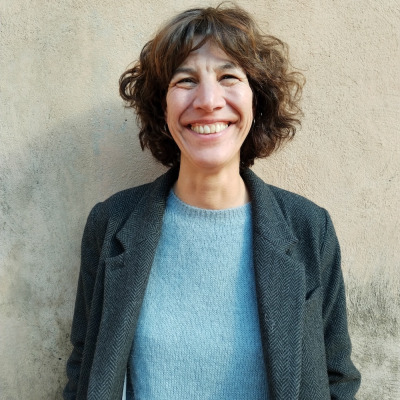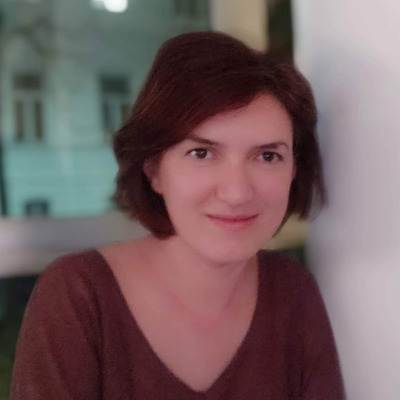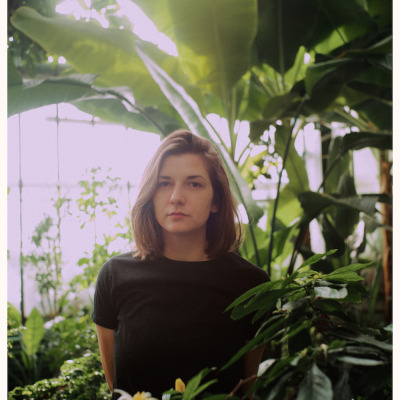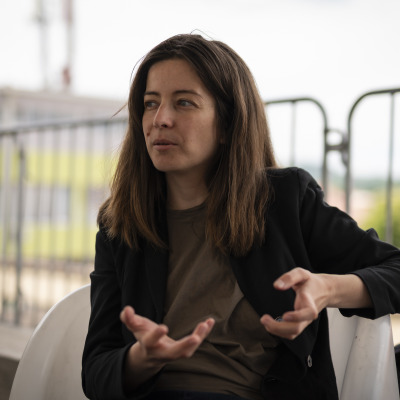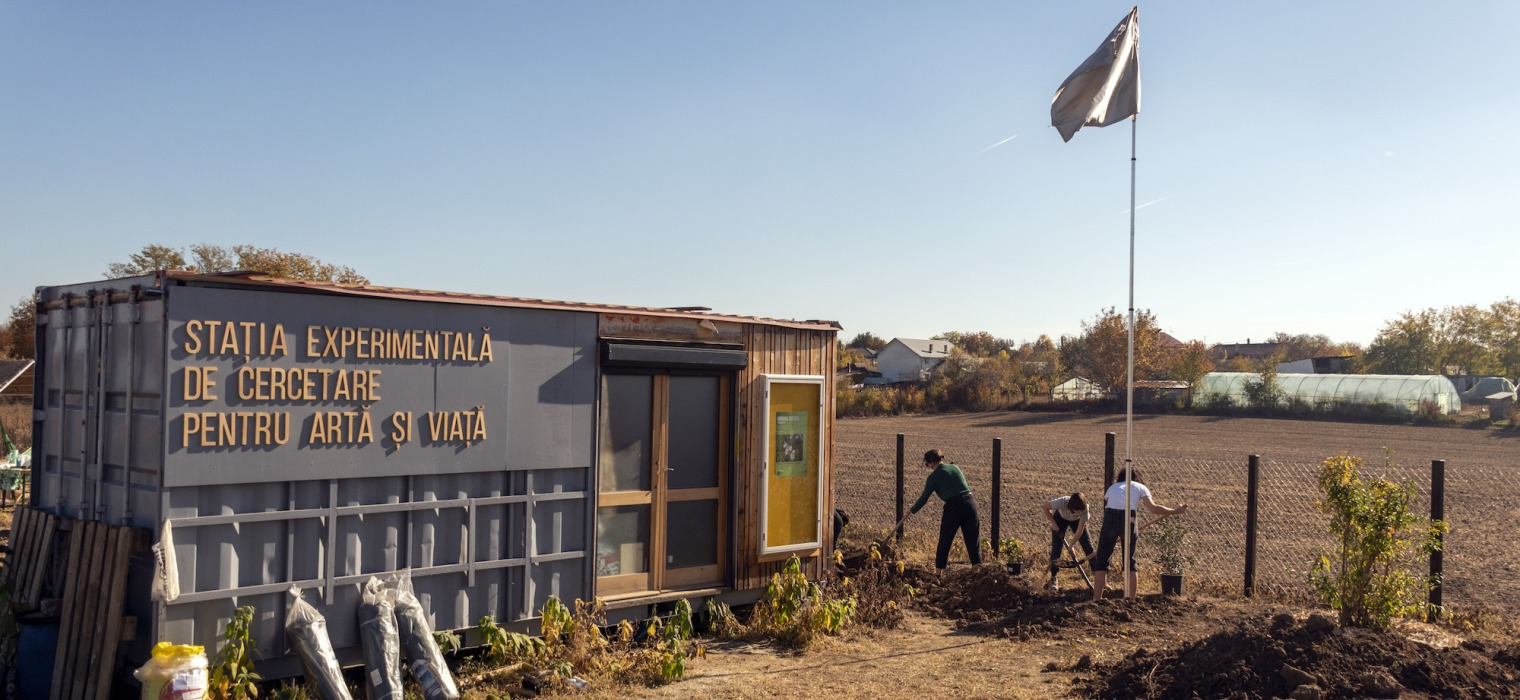
Collective Struggles for Sustainability (1st panel)
Amelie Aranguren
Raluca Voinea & Adelina Luft
Mala Kline
the panel is moderated by Irena Borić
With the idea that this panel can contribute to our collective struggles, we look into initiatives and projects that embrace countryside, away from intensive industrialization models, defending a social, sustainable ecological agriculture that is conscious of its own limits, as Amelie Aranguren would address in her contribution. Post-humanist approach is present in Raluca Voinea & Adelina Luft’s curatorial practice that explores the relationship with land, practices of resilience and resistance, as well as ways to self-determine a curatorial position in relation to institutional structures of power. Additionally, Mala Kline presents her artistic practice of ongoing return into the creative space where dreaming and the here and now continuously penetrate and inform each other, which is juxtaposed to her life efforts of creating such physical space. Irena Borić looks into space between art and life in order to pose questions on responsibility for our common vulnerability in face of ecological struggles.
Irena Borić will open up questions about what kind of methodology can we embrace to look into ways of going beyond seemingly unsolvable discrepancy between art and life. Can art practice become a tool to be in the world differently? By finding and adjusting speculative and/or practical and concrete shifts in our immediate surroundings, we learn and unlearn how to (be)come together and meet each other on the common ground along the lines of care and sustainability, but also precarity and vulnerability. How do we take responsibility for our common vulnerability in face of ecological struggles?
Amelie Aranguren (Paisanaje collective): 78.6%: The Cities We Want.
Presentation and workshop
Amelie Aranguren will open the conference with a presentation of her practice. The presentation will focus on the project called Paisanaje. Aranguren will present what she did in Rome last year in the context of Agrocittà, a project about agroecological production, the consumption, and activism that sustain it in the city.
The presentation will also serve as an introduction to the workshop, which is structured in two sessions on the 25th and 26th April. It will take place in the city of Ljubljana, the surface of which is 78.6% rural areas, mainly characterised by agricultural and forest surfaces. It will cover identifying groups of peri-urban producers and forms of consumption, ranging from direct sales, markets, or self-organised groups. In short, it will be about detecting initiatives and projects that in one way or another strive for a living countryside, away from intensive industrialization models, defending a social and sustainable agriculture that is conscious of ecological limits.
This workshop takes place at a time when agriculture has returned to the headlines, raising questions such as: What is the value of food? Who determines it? Where is the farmer’s profit? These questions will be answered through small actions into which imagination and creation will be incorporated.
To join the workshop, apply production@cityofwomen.org until 22th of April. The times and the location of the workshop will be announced later.
Raluca Voinea & Adelina Luft: Enacting the Living Against the Unsustainability of the Context
At the Experimental Station for Research on Art and Life, we are testing the clayish grounds of future living conditions. Situated close to Bucharest in the south of Romania, where climate disruptions have intense and visible effects, the Station is a depleted former monoculture field. On it, we have started planting a biodiverse garden, building it with ecological principles in mind, such as reuse, adapt, repurpose. Our actions cannot have a real impact, especially when we are surrounded by intensive agriculture practices and people from the city who relocate to the village, bringing along their extractive lifestyles and hiding behind high concrete fences. However, when looking at and mapping other territories where similar initiatives emerge, we see ourselves as part of a movement through which we connect to the cultivators of life, to the stewards of lands, to those who have learnt to preserve and exchange the seeds of hope.
Mala Kline: ELIAS 2069: A Hub for Potentials
ELIAS 2069 is an institute, a school, an art and research residency space, a stage, a home, a durational art project, but, foremost, it is a hub for the creation of blueprints for the coming world. It supports what is potential in the present on its way towards manifestation. We desire to cultivate visionary consciousness, multi-dimensional relationality, and our reconnection with nature. Realignment and reimagining our part in the Earth’s progression is important to us. We desire to build a place that is a generator of change, an initiator of transformation, a host for the alternative ways, with emphasis on ecology, circular and gift economy, and sustainable living. In this presentation, Mala Kline will throw light on some of the reasons to build ELIAS and explain its mission, activities, organisation and management as a continuous practice of care, as ongoing research on how to develop autonomous circular systems of being and exchange, and as a practice of cultivating connection with the natural environment we live in.

